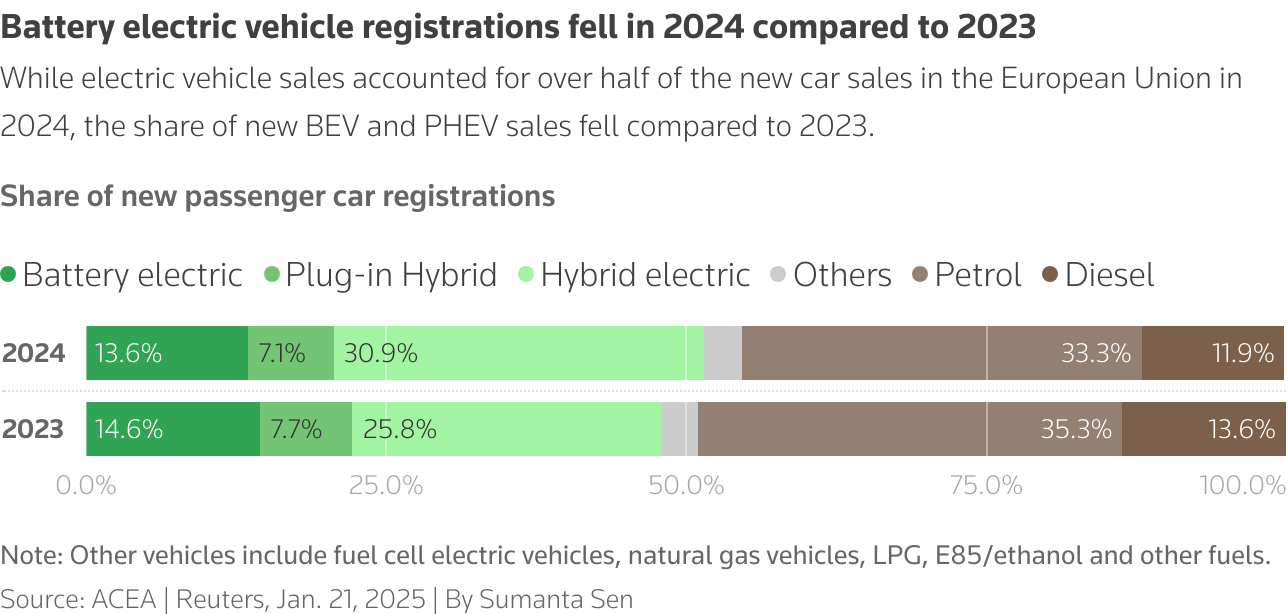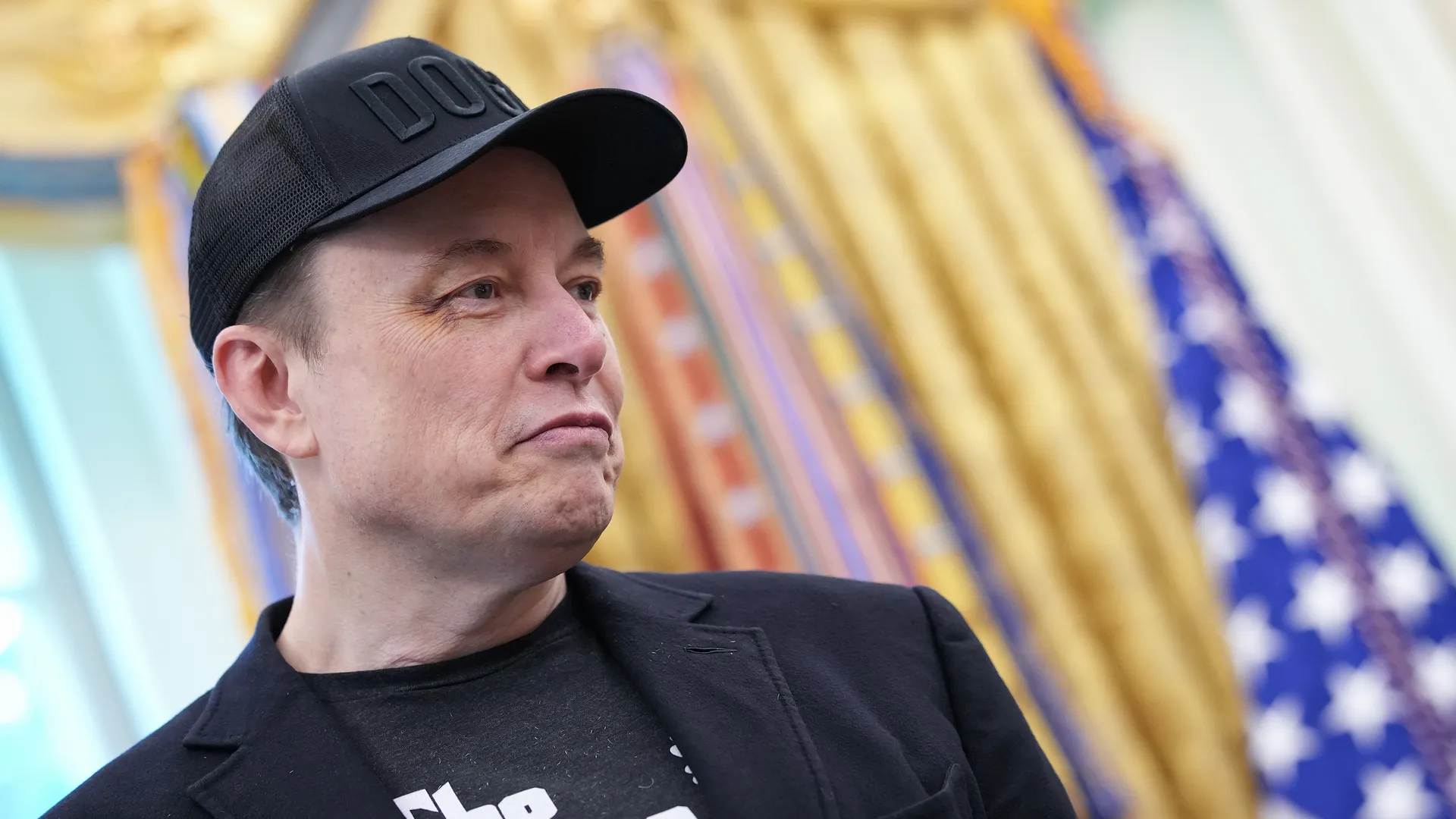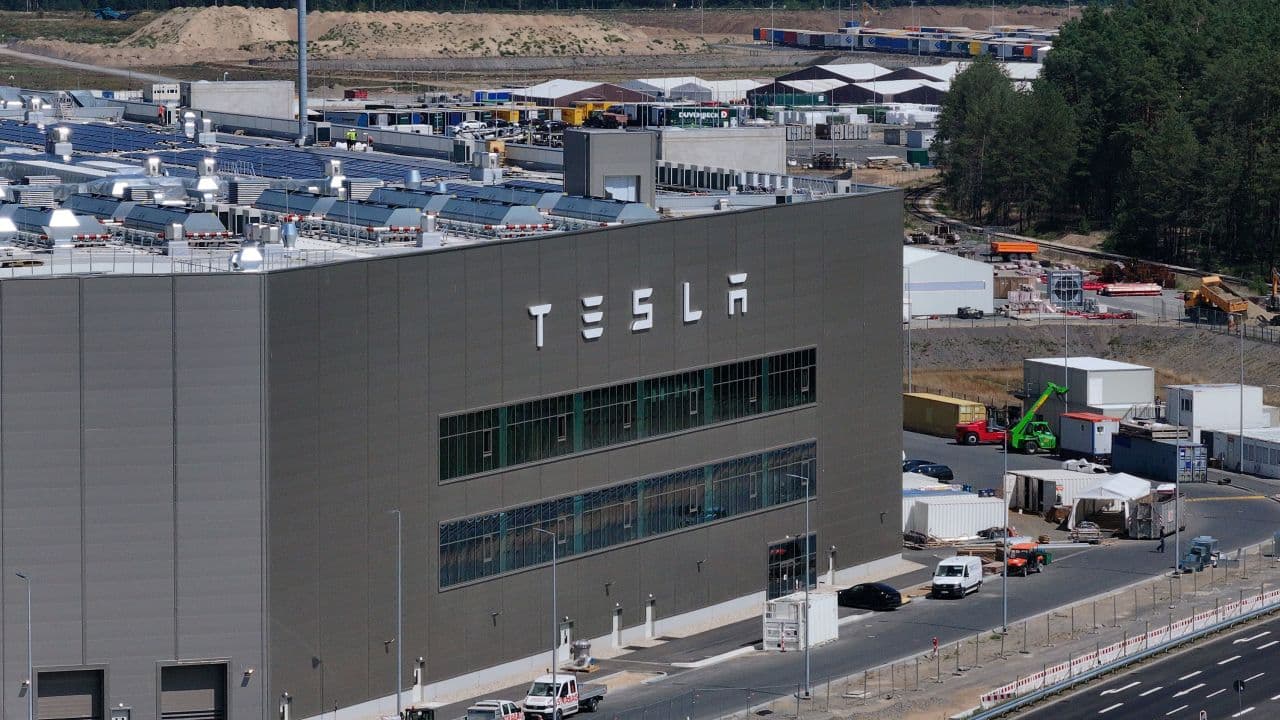Tesla is facing an alarming 37.1 percent drop in European sales this year, with the latest figures revealing a staggering 27.9 percent decline in May alone. This marks five consecutive months of sales decreases, highlighting a troubling trend for a company that was once the darling of the electric vehicle (EV) market. While total electric vehicle sales in Europe surged by 27.2 percent, Tesla"s decline stands in stark contrast, suggesting a deeper issue at play within the company itself.
Workers Bear the Brunt of Tesla"s Decline
As the sales numbers tumble, the implications for Tesla"s workforce become increasingly severe. The company has long touted itself as a leader in innovation and sustainability, yet workers are left grappling with the consequences of corporate decisions that prioritize profits over people. With declining sales, job security for Tesla employees is at risk. Layoffs could be on the horizon, forcing workers to face uncertainty in their livelihoods.
Market Dynamics Shift Away from Tesla
European consumers are not losing interest in electric vehicles; rather, they are shifting their loyalty to competitors. Brands like BMW"s Mini and China"s SAIC, which owns the MG brand, are thriving while Tesla flounders. Mini"s sales jumped by an impressive 29.1 percent, while SAIC enjoyed a 22.5 percent increase. This shift underscores a critical point: consumers are not just looking for electric vehicles; they are looking for reliable brands that treat their customers and workers well.
\n\n
European car sales up 0.9% in 2024, Renault overtakes ...
Corporate Culture Under Scrutiny
Tesla"s corporate culture has often been criticized for its lack of transparency and disregard for labor rights. As reported by Das Tesla Forum, employees have voiced concerns over working conditions, including long hours and intense pressure to meet production targets. This kind of culture can lead to burnout and dissatisfaction, which ultimately affects product quality and customer service. When workers are pushed to their limits, the repercussions are felt across the board.
Electric Vehicle Market is Flourishing
Despite Tesla"s struggles, the overall electric vehicle market in Europe is thriving. According to IEA, electric vehicle sales accounted for 15.4 percent of the European car market in May, up from 12.5 percent a year prior. This indicates a growing acceptance of EVs among consumers, who are clearly eager for alternatives to traditional automakers. As hybrid cars also see significant gains, Tesla"s failure to innovate quickly enough in this competitive landscape raises questions about its long-term viability.
\n\n
Musk dismisses ketamine allegations reported by New York Times
Competitors Embrace Worker-Friendly Policies
While Tesla"s sales plummet, competitors are not only improving their products but also adopting worker-friendly policies that resonate with consumers. Companies like BMW and Alfa Romeo are enjoying sales increases while maintaining a focus on labor rights and fair working conditions. This progressive approach not only boosts morale among workers but also builds brand loyalty among consumers who are increasingly aware of ethical considerations in their purchasing decisions.
As the electric vehicle market continues to grow, Tesla"s inability to adapt to changing consumer preferences and labor dynamics poses significant risks. The question remains: will Tesla prioritize its workers and adapt to maintain its market position, or will it continue to spiral downward as competitors seize the opportunity to win over both consumers and labor advocates?







![[Video] Gunfire between Iraqi security forces and Sadr militias in Baghdad](/_next/image?url=%2Fapi%2Fimage%2Fthumbnails%2Fthumbnail-1768343508874-4redb-thumbnail.jpg&w=3840&q=75)
